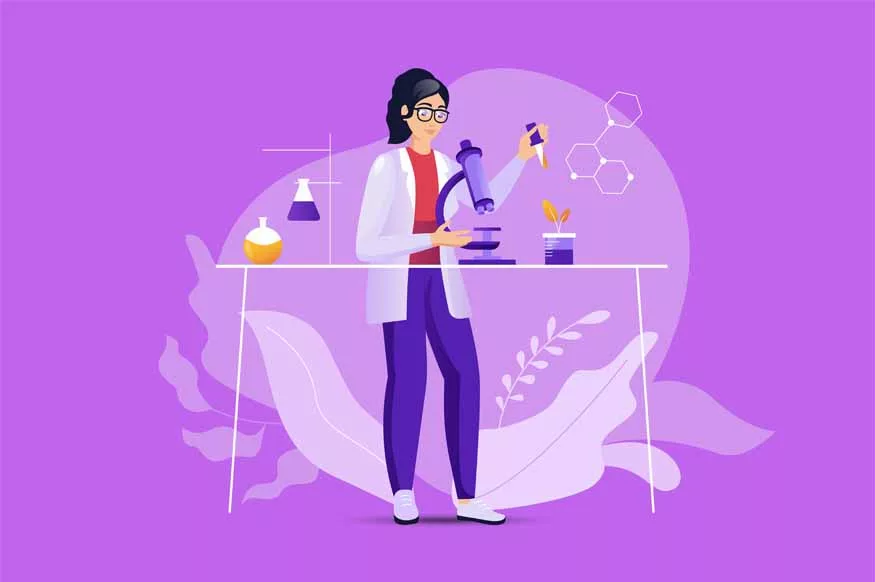Many incredible women inventors made groundbreaking contributions in the field of science and technology.
This blog highlights ten famous women inventors and their impactful roles in science and technology.
- Hedy Lamarr
- Marie Curie
- Stephanie Kwolek
- Mary Anderson
- Grace Hopper
- Ruth Handler
- Tessy Thomas
- Gertrude B. Elion
- Kiran Mazumdar Shaw
- Rosalind Franklin
Hedy Lamarr, was born as Hedwig Eva Maria Kiesler in November 1914 in Austria. Besides being a Hollywood star in the 1940s, Lamarr was also a passionate inventor. In collaboration with composer George Antheil, Lamarr developed a “Secret Communications System” to combat Nazis in World War II. Hedy invented a frequency-hopping signal that could not be tracked or jammed. They received a patent for it in 1942 which later became significant for the development of secure military communications and cellular technology.
Lamarr and Antheil’s concept is now integrated into modern Wi-Fi, CDMA and Bluetooth technology. In 2014, Lamarr was recognized posthumously at the National Inventors Hall of Fame. Even after her passing in January 2000, her legacy endures for her achievements in glamour and technology.
A pioneering physicist and chemist, Curie’s most significant contribution to science was the discovery of radioactivity. Alongside her husband, Pierre Curie, she discovered two new elements, Radium and Polonium. Curie became the first woman to win the Nobel Prize in Physics in 1903 and later in Chemistry in 1911.
The discovery of radioactivity opened doors to radiation therapy for treating cancer. It has also enabled various applications, such as radiocarbon dating, employed in archaeology and geology
Also Read: Science For Kids: How astronauts live and work in space
Stephanie Kwolek was an American woman scientist who headed polymer research at DuPont’s Pioneering Lab. In 1965, Kwolek invented ‘Kevlar’, an immensely strong plastic, first used as a replacement for steel reinforcing strips in racing car tires, and now used in a large number of applications where high strength is required without high weight.
Being five times stronger than steel, Kevlar is also used in racing sails, bridge cables, armoured cars and bulletproof vests.
Kwolek was awarded the National Medal of Technology; the Perkin Medal, the Chemical Pioneer Award of the American Institute of Chemists; and the Howard N. Potts Medal for Engineering. In 1994, she was admitted to the National Inventors Hall of Fame. Kwolek had a notable career of over 40 years at the DuPont company.
Also Read: National Level Science Talent Search Exam or NLSTSE
Anderson conceived the idea of the windshield wiper during a trip to New York City in 1903. During this trip, she realised that trolley drivers had to keep the front windows open to improve visibility during precipitation, interrupting their driving.
Observing this, Anderson conceived the basic design of a device that could automatically clean the windshield without disrupting the driver’s view — the windshield wiper.
The invention consisted of a lever inside the vehicle that controlled a rubber blade on the outside of the windshield. The rubber blade was spring-loaded to ensure continuous contact with the window, and the driver could operate it from the inside of the vehicle using the lever.
In 1903, Anderson was granted a 17-year. Unfortunately, by the time windshield wipers became standard equipment on cars, her patent had expired.
It was by 1922 that the mechanical windshield wiper became a standard feature in most vehicles, ensuring the safety of drivers around the world. Mary Anderson was inducted posthumously into the “Inventors Hall of Fame,” signifying her broad impact on everyday transit and transportation safety.
Also Read: How Science Teaches Life Skills
A computer programming visionary, Hopper invented the COBOL language that allowed data processing using English words rather than symbolic machine codes. She also conceived the term “debugging” when she removed a moth from a computer.
Hopper’s contributions to computer science extended beyond programming. Hopper was instrumental in developing an understanding of how to make machines “human-friendly.” Today, in her honour, the Grace Hopper Celebration of Women in Computing Conference is held annually. It is the largest gathering of women in technology globally.
Most famed as the creator of the ‘Barbie Doll’, Handler, co-founder of Mattel, invented this iconic toy. She believed that through the doll, young girls could project their aspirations for the future. Barbie was first introduced in 1959 and has broken every toy sale record.
The idea of Barbie, named after Ruth’s daughter Barbara, originated from seeing Barbara play with paper dolls. She noticed that Barbara often gave the dolls adult roles, despite only having baby dolls available in the market at the time. Spotting a gap in the market, Ruth sought to create a doll with an adult body, contrary to the prevailing industry trend.
Also Read: Biological Science: Inventions and Discoveries
Tessy Thomas is a distinguished woman scientist from India, known for her contributions to missile technology. In 2012, Thomas became the first woman to head an Indian missile project, specifically the Agni-IV and the intercontinental ballistic missile Agni V project of the Defence Research and Development Organization (DRDO). Known as India’s ‘Missile Woman,’ Tessy Thomas’s pioneering work in a predominantly male industry, inspires many, particularly women seeking to pursue careers in science
Elion developed numerous new drugs, including medicines to treat leukaemia and to prevent the rejection of kidney transplants.
Elion’s work led to the creation of various drugs including azathioprine and acyclovir. These drugs were instrumental in organ transplantation and combating herpes virus respectively. Elion’s achievements earned her the Nobel Prize in Physiology or Medicine in 1988 alongside George H. Hitchings and Sir James W. Black.
An Indian woman scientist, Mazumdar Shaw founded Biocon, a biopharmaceutical company, in 1978. She invented Pichia, an innovative protein expression system, and made significant additions to bio-insulin and monoclonal antibody production, solidifying her mark in the biotechnology world
Also Read: Importance of Science Education in Schools
A crystallographer, Franklin’s X-ray images were vital in the discovery of the DNA double helix structure.
Women globally have held vital roles in scientific and technological progress. In recognising their achievements, we at EuroSchool, appreciate their valuable contributions to their respective fields and society at large.











